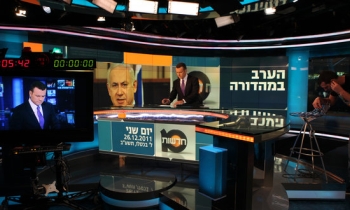BEIJING (Reuters) - Chinese Olympic officials defended on Tuesday the collection of information on journalists, saying such databases would be used to help the media at Beijing 2008, not to create blacklists or hinder reporting.
The comments came a day after state media said authorities were building a database of information on about 30,000 foreign journalists accredited to cover Beijing 2008.
The information would be shared with potential interviewees, to keep them from being tricked by "fake reporters", the report in the state-run China Daily quoted the head of the General Administration of Press and Publication as saying.
China says fake reporters use phony accreditation in scams in which they pose as journalists and try to blackmail government or business officials by threatening negative coverage.
Officials at Beijing's organising committee for the Games said the committee had its own database, but that its purposes were benign.
"I do not know the function of the database you have just mentioned, but maybe the function is similar to ours -- that is, to provide better service to you," Li Zhanjun, director of the Beijing Olympics media centre, told reporters.
"The major purpose is to provide better service to the reporter," he said. For instance, information on journalists' preferences would help Olympic organisers target events to their needs.
"The purpose is not to monitor or influence foreign reporters or domestic reporters or put up blacklists. This is not our aim," he said.
China, whose own media is strictly controlled, promised greater freedoms for foreign journalists to report on the Games, and as of Jan. 1 eased rules governing their ability to report outside major cities.
But rights groups say it is not making good on its pledges, and that the campaign against "fake" journalists is being used as justification to prevent reporters from pursuing stories unfavourable to local authorities.
The New York-based Committee to Protect Journalists called on China to abandon the crackdown and expressed concern about the reports of the database.
"Allegations of 'fake' reporting are a transparent justification for extending the Chinese government's strict control of press coverage ...," the group's Executive Director, Joel Simon, said in a statement.
"We call on the government to institute the absolute freedom of the press that was guaranteed when the Games were awarded."
Olympic officials also denied that China was trying to steer coverage toward only positive stories.
"We cannot, through administrative orders, let foreign reporters only cover the good side of the story," Li said. "It is impossible. The reporters can see the real China through their own eyes."









